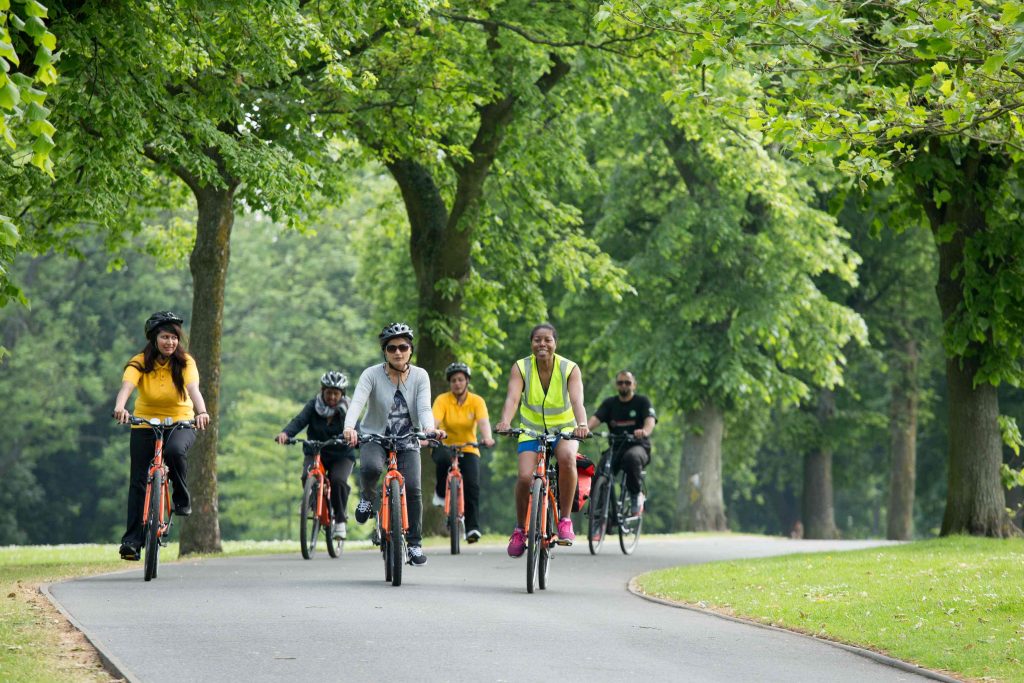
Words by Bella Zanin (Knowledge Exchange Associate)
As the Government consults the Climate Change Committee on delivering the UK’s new emissions reduction target, CAST offers its perspective. While the goal is bold and necessary, Keir Starmer’s assertion that we can achieve it without any changes to people’s lifestyles is misguided, and unhelpful.
Earlier this month, in a football-stadium-turned-giant-conference-centre in Baku, Azerbaijan, the Prime Minister announced a new emissions target and urged other nations at the annual UN Climate Summit to match the UK’s ambition. Starmer’s goal is certainly laudable – but, as the Government is also asking, is he really going to get there through technology alone?
‘Yay’ to a more ambitious climate target
Starmer’s announcement at COP29 upped the UK’s emissions reduction target. He committed to slashing the UK’s production of harmful planet-warming gases by 81% (compared with 1990 levels) by the year 2035.
This is a goal worth striving for. According to the Climate Change Committee (CCC) – the UK’s independent climate change experts – the new target is feasible, beneficial for jobs and investment, and, crucially, in line with the action needed to keep global temperature rise to a minimum.
In a rare moment of agreement across (most) climate groups, the UK’s new target has received support from the UN’s climate chief Simon Stiell, as well as environmental charities and academics.
Commenting on the announcement, Tanya Steele, chief executive at WWF, said: “The target is a welcome indication that the new UK government recognises the urgency of reducing emissions to prevent dangerous climate impacts, guarantee greater energy security and create jobs.”
‘Nay’ to putting all our faith in technology
The problem with Starmer’s goal is how he’s planning to get there. The Prime Minister said that emissions cuts will be achieved by shifting from fossil fuels to clean energy. So far, so good.
He also claimed that this can be done without any changes to people’s behaviour: “It’s not about telling people how to live their lives – I’m not interested in that.” When pressed on whether it was realistic to think we could meet this target without altering our lifestyles, he replied: “Yes, of course it is.” Less good.
Now what the PM was probably getting at here is the importance of not lecturing people or telling them off. We agree – none of us react particularly well to being told something we’re doing is wrong and that we should change. Especially when we’re highly alert to potential hypocrisy from the people lecturing us.
But Starmer will also know that there’s no way we’re meeting climate goals without any kind of behaviour change at all. Analysis by the Government’s own climate advisors shows that 60% of emissions reductions will require consumers to do things differently. The simple reality is that lower carbon lives are needed – technology alone won’t save us.

Yes, we need low-carbon heating systems (like heat pumps). But – even as costs fall – they are only useful if people are willing to install them. Yes, we need more efficient batteries. But electric vehicles will only replace petrol cars if people are willing to drive them. How people think, feel and behave is key to the success of sustainable technology. (And that’s to say nothing about broader essential behavioural changes to things like what we eat, how much we waste, where we keep our money and whether we protect nature).
Importantly, not everyone needs to change their lifestyles to the same extent. Wealthy people – who generally have higher carbon footprints and greater capacity to act – must lead the way.
People want to do their bit
People actually support ambitious climate action, not just from the Government but in their own lives as well. Parents are seeing that fewer cars on the road = cleaner air for their children to play outside in. Residents are seeing that local renewable energy projects = a greater sense of community. As our partners Climate Outreach have found, British people are proud of ‘doing their bit’ on climate change and want to know more about what that looks like.
People are becoming more ‘carbon capable’. We all understand that climate action is important and we’re taking more of it. But there’s work to be done still on certain behaviours, like changing diets and flying less. And it’s here that the Government has a vital job – to make it easier, cheaper and more attractive for people to live sustainably.
There should be no debate about whether we need systemic action OR individual action. We need everything, everywhere, all at once. The notion that we can carry on exactly as we are and solve climate change is not only un-true. It’s unhelpful. Change can improve our lives and people aren’t afraid of it. Our leaders shouldn’t be either.
Find out more about the Government’s inquiry into the role of behaviour change in reducing emissions.
Learn more about our research into social transformations and climate action in our CAST Key Messages Report.
Follow us on Twitter and LinkedIn and subscribe to our newsletter for future updates from the CAST team.


